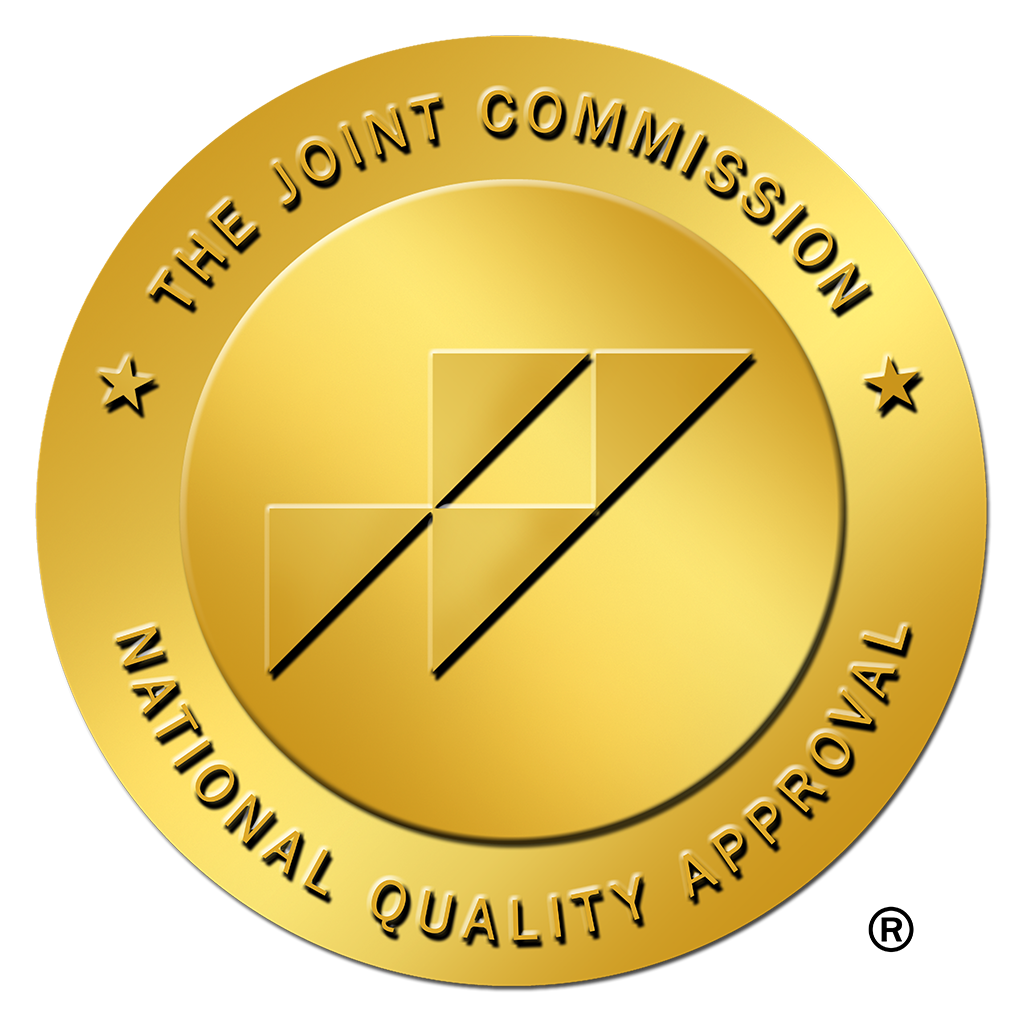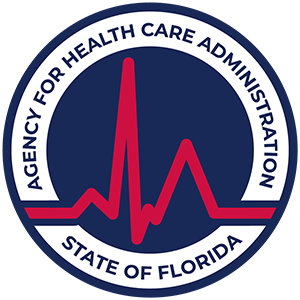Psychosis is a complex mental health condition that profoundly impacts an individual’s perception and interpretation of reality. Those experiencing psychosis may encounter hallucinations, delusions, and disorganized thinking or speech, which can significantly disrupt their daily lives.
Key Takeaway: This article explores the different aspects of psychosis, including its symptoms, causes, and treatment options. Understanding these elements can help you support those affected by this condition and create a compassionate environment for their recovery.
Raising awareness about psychosis is crucial to reducing stigma and ensuring prompt intervention. Misunderstandings about this mental health issue often result in fear and discrimination. By educating ourselves and others, we can promote more empathetic responses and establish better support systems for those in need.
What is Psychosis?
Psychosis is a broad category of mental disorders marked by a profound disconnection from reality. People experiencing psychosis often encounter hallucinations, delusions, and disordered thinking or speech. These symptoms can profoundly impact an individual’s perception, thoughts, and interactions with the world around them.
Understanding Hallucinations
Hallucinations are sensory experiences that occur without an actual external stimulus. They are perceived as very real by the person experiencing them. The types of hallucinations include:
- Auditory Hallucinations: Hearing voices or sounds that aren’t present. This is the most common type of hallucination in psychosis. For example, someone might hear voices commenting on their actions or conversing with them.
- Visual Hallucinations: Seeing things that aren’t there, such as people, shapes, or flashes of light.
- Tactile Hallucinations: Feeling sensations on the skin or within the body without a physical cause, like insects crawling under the skin.
- Gustatory Hallucinations: Experiencing unusual tastes that have no source, sometimes described as metallic or other distinct flavors.
- Olfactory Hallucinations: Smelling odors that aren’t present in the environment, which can be pleasant or unpleasant.
Examining Delusions
Delusions are firmly held false beliefs that are resistant to reasoning or contrary evidence. They are another hallmark of psychosis and can vary widely in theme and intensity.
Common themes in delusions include:
- Persecutory Delusions: Beliefs that one is being targeted, harassed, or persecuted by others. For instance, someone might believe they are being followed by government agents.
- Grandiose Delusions: An inflated sense of one’s importance, power, knowledge, or identity. Examples include believing oneself to be a famous personality or having extraordinary abilities.
- Erotomanic Delusions: The belief that another person, often someone well-known or of higher status, is in love with the individual.
- Somatic Delusions: False beliefs about one’s body, such as thinking one has a serious illness despite medical evidence to the contrary.
- Referential Delusions: Believing that everyday events have special meaning personally directed at oneself.
Disordered Thinking and Speech Patterns
Disorganized thinking manifests through incoherent thoughts and speech patterns. Individuals with psychosis may find it challenging to organize their thoughts logically or coherently express themselves.
Characteristics of disordered thinking and speech include:
- Loose Associations: Jumping from one idea to another with little connection between thoughts. Conversations may seem fragmented and hard to follow.
- Tangentiality: Straying off-topic frequently during conversations without returning to the original point.
- Word Salad: A jumble of words and phrases that lack grammatical structure and coherence.
- Clang Associations: Using rhyming words or sounds instead of logical connections (e.g., “I feel you heel and reel”).
Understanding these core aspects of psychosis—hallucinations, delusions, and disordered thinking—helps us develop empathy and effective support strategies for those affected by this complex mental health condition.
Causes and Risk Factors
Age of Onset
Psychosis often appears for the first time during a critical period in a person’s life. The typical age range for the emergence of psychotic symptoms is from the late teens to mid-20s. This phase of life is marked by significant developmental changes, both physically and emotionally.
- Late Adolescence: This period involves navigating complex social relationships, academic pressures, and impending adulthood responsibilities.
- Early Adulthood: As individuals enter this stage, they face additional stressors such as career choices, higher education demands, and increased autonomy.
These transitions can act as catalysts for the onset of psychosis, particularly for those who are already vulnerable.
Contributing Influences
The development of psychosis is influenced by a combination of genetic, biological, and environmental factors. Understanding these can help shed light on why some individuals experience psychosis while others do not.
Genetic Risk
Genetic predisposition plays a significant role in the risk of developing psychosis:
- Family History: Individuals with a family history of mental health disorders are at a higher risk. Studies show that having a first-degree relative with schizophrenia increases the likelihood of developing psychosis.
- Twin Studies: Research involving identical twins indicates that if one twin develops psychosis, the other has a higher chance compared to non-identical twins or siblings.
These findings underscore the importance of genetic factors in understanding psychosis.
Brain Development Differences
Abnormalities in brain development are another key factor:
- Structural Changes: Advanced imaging techniques have revealed structural differences in the brains of individuals experiencing psychosis. These may include variations in grey matter density and abnormalities in brain regions responsible for perception and reasoning.
- Neurochemical Imbalances: Disruptions in neurotransmitter systems, particularly dopamine and glutamate pathways, have been implicated. An imbalance in these chemicals can affect mood, perception, and cognition.
These brain development differences highlight the biological underpinnings that contribute to psychosis.
Stressors/Trauma
Environmental stressors play an equally crucial role:
- Childhood Trauma: Experiencing trauma during childhood, such as abuse or neglect, can significantly increase the risk. The impact of early adverse experiences can have long-lasting effects on mental health.
- Life Stressors: Significant life events like loss of a loved one, relationship breakdowns, or severe financial difficulties can trigger psychotic episodes. These stressors can overwhelm an individual’s coping mechanisms.
Environmental influences interact with genetic vulnerabilities to create a complex web of risk factors. For instance, someone with a genetic predisposition might never develop psychosis unless they encounter specific stressors or traumatic events.
A Harmonious Interplay
The onset and progression of psychosis result from an intricate interplay between these various factors. Genetic vulnerabilities set the stage; brain development differences provide biological context; environmental stressors or trauma act as triggers.
Understanding this interplay helps us appreciate the complexity behind psychosis. It underscores the importance of a multifaceted approach to prevention and intervention—one that considers genetic counseling, early life support systems, and resilience-building strategies to mitigate environmental risks.
Recognizing and Diagnosing Psychosis
Recognizing the Symptoms of Psychosis
Understanding the symptoms of psychosis is crucial for identifying this complex mental health condition. Psychosis manifests in a variety of ways:
1. Hallucinations
These are sensory experiences that appear real but are created by the mind. They can affect any of the senses:
- Auditory hallucinations involve hearing voices or sounds that others do not hear.
- Visual hallucinations include seeing things that aren’t present.
- Tactile hallucinations refer to feeling sensations on the skin without a physical cause.
- Gustatory and olfactory hallucinations involve unusual tastes or smells.
2. Delusions
These are strong beliefs in something untrue or not based in reality. Common delusional themes include:
- Persecutory delusions: Belief that one is being harassed or targeted.
- Grandiose delusions: An inflated sense of importance, power, or identity.
- Referential delusions: Belief that ordinary events or comments are specifically related to oneself.
3. Disorganized Thinking and Speech Patterns
People with psychosis often exhibit disordered thinking, which affects their speech:
- Speech may be incoherent or difficult to follow.
- Conversations might abruptly shift from one topic to another without logical connections.
- Responses to questions can be tangential or unrelated.
4. Disorganized Behavior
This includes unpredictable, inappropriate, or strange behavior that affects daily functioning:
- Difficulty performing everyday tasks such as personal hygiene or cooking.
- Agitated movements, pacing, or catatonia (lack of movement).
These symptoms can vary in intensity and duration, often causing significant distress and impairing one’s ability to function in everyday life.
The Importance of Early Diagnosis and Intervention
Identifying psychosis early can profoundly impact treatment outcomes. Early diagnosis and intervention offer several benefits:
1. Timely Treatment Initiation
The sooner treatment begins, the better the chances for managing symptoms effectively. Antipsychotic medications and therapies can be more beneficial when introduced at an early stage.
2. Reducing Complications
Early intervention helps prevent the worsening of symptoms and reduces the risk of complications such as substance abuse, self-harm, or suicidal thoughts.
3. Improving Long-Term Prognosis
With prompt treatment, individuals are more likely to achieve a better long-term prognosis. Early support helps maintain social connections, education, employment, and overall quality of life.
4. Minimizing Stigma
Raising awareness about the importance of early diagnosis helps reduce societal stigma. When people understand that psychosis is a medical condition requiring prompt care, it fosters a more supportive environment for those affected.
Encouraging early help-seeking behavior is essential. If you notice signs of psychosis in yourself or a loved one, reaching out to healthcare professionals promptly makes a significant difference. Mental health services like Milton Recovery offer comprehensive support tailored to individual needs.
Understanding these aspects aids in recognizing when professional help is needed and underscores the importance of timely intervention for anyone experiencing symptoms of psychosis.
Treatment Approaches for Psychosis
Overview of Treatment Options
Managing psychosis involves a holistic approach that incorporates various treatment modalities tailored to the individual’s needs. These typically include:
- Antipsychotic Medications
- Psychotherapies
- Psychosocial Interventions
Medication for Symptom Control
Antipsychotic medications play a crucial role in reducing symptoms such as hallucinations and delusions. These medications can be classified into two categories:
- Typical Antipsychotics: Older drugs like haloperidol and chlorpromazine.
- Atypical Antipsychotics: Newer medications including risperidone, olanzapine, and aripiprazole.
Both categories can be effective, but they come with potential side effects such as weight gain, drowsiness, and movement disorders. It’s important for individuals to work closely with their healthcare providers to find the medication that offers the best balance of benefits and manageable side effects.
Psychological Therapies for Recovery
Talk therapies are essential in supporting individuals with psychosis. Two effective approaches include:
- Cognitive-Behavioral Therapy (CBT): Helps individuals challenge and change unhelpful thought patterns and behaviors. CBT has been shown to reduce the severity of psychotic symptoms and improve overall functioning.
“CBT provides tools for managing symptoms and fosters resilience,” says Dr. Emily Johnson, a clinical psychologist specializing in psychosis.
- Family-Focused Interventions: Engaging family members in therapy can enhance understanding and support within the home environment. This approach helps relatives develop strategies to assist their loved ones while also addressing their own emotional needs.
Creating a Supportive Environment
Social support networks are vital in the recovery journey of those living with psychosis. Rehabilitation services such as vocational training, supported employment, and social skills training contribute significantly to an individual’s overall well-being.
- Peer Support Groups: Connecting with others who have similar experiences can reduce feelings of isolation and provide practical advice.
- Community Services: Access to housing assistance, educational programs, and leisure activities promotes a sense of normalcy and independence.
When Hospitalization is Necessary
In some cases, acute episodes of psychosis may require psychiatric hospital admission. This step ensures safety when:
- Symptoms are severe or rapidly worsening.
- There is a risk of harm to oneself or others.
- Intensive monitoring or immediate medical intervention is needed.
Hospitalization provides a structured environment where intensive treatment can be administered, stabilizing the individual’s condition before transitioning back to outpatient care.
Promoting Long-Term Recovery and Well-Being
Emphasis on Early Intervention Services
Early treatment is crucial for individuals at risk of or in the early stages of psychosis. Specialized programs, often referred to as Early Intervention Services (EIS), aim to provide prompt treatment and support. These services can significantly improve outcomes by reducing the severity and duration of psychotic episodes.
Key Components of EIS:
- Comprehensive Assessment: Thorough evaluation to understand the individual’s needs.
- Personalized Treatment Plans: Tailored approaches addressing unique symptoms and circumstances.
- Multi-disciplinary Teams: Collaboration between psychiatrists, psychologists, social workers, and other professionals.
EIS programs often include not only medical interventions but also psychosocial support. This holistic approach helps individuals build coping skills, enhance social functioning, and integrate into their communities more effectively.
Fostering Hope and Empowerment
Promoting recovery from psychosis involves more than just medical treatment. It requires a comprehensive strategy that empowers individuals and fosters hope.
Holistic Treatment Planning:
- Integration of Physical Health: Ensuring physical well-being alongside mental health care.
- Lifestyle Modifications: Encouraging healthy habits such as balanced diet, regular exercise, and adequate sleep.
- Mindfulness Practices: Incorporating techniques like meditation and yoga to reduce stress.
Peer Support Initiatives:
- Peer Support Groups: Creating spaces where individuals can share experiences and offer mutual support.
- Peer Mentors: Trained individuals who have experienced psychosis themselves providing guidance and inspiration.
These initiatives cultivate a sense of community and belonging. They empower individuals to take an active role in their recovery journey, fostering resilience and self-efficacy.
Building a Supportive Environment
A supportive environment is integral to long-term recovery. Social support networks play a critical role in the overall well-being of those living with psychosis.
Family Involvement:
- Education for Families: Providing families with knowledge about psychosis to help them better understand and support their loved ones.
- Family Therapy: Facilitating open communication and resolving conflicts within family dynamics.
Community Resources:
- Rehabilitation Services: Offering vocational training, educational opportunities, and recreational activities to aid reintegration into society.
- Supportive Housing: Safe living environments that offer stability and reduce stressors associated with independent living.
By creating an environment that nurtures growth, understanding, and acceptance, we lay the groundwork for sustained recovery from psychosis.
Promoting long-term recovery from psychosis is a multifaceted endeavor that hinges on early intervention, holistic care, empowerment through peer support, and a nurturing environment. These elements collectively pave the way for individuals to reclaim their lives with dignity and hope.
Supporting a Loved One with Psychosis
Guidance for Families and Friends
Recognizing the early signs of psychosis in a loved one can be challenging yet crucial. Early intervention can make a significant difference in treatment outcomes. Here are practical tips to help you navigate this difficult time:
- Observe Behavioral Changes: Keep an eye out for unusual behaviors such as social withdrawal, erratic thoughts, or drastic changes in mood.
- Listen Without Judgment: Create a safe space for your loved one to express their feelings and thoughts without fear of criticism.
- Encourage Professional Help: Gently guide them to seek medical advice immediately. Emphasize the importance of consulting with mental health professionals who can provide accurate diagnoses and appropriate treatment plans.
- Educate Yourself: Understanding what psychosis entails can help you better support your loved one. Learn about symptoms, treatments, and coping strategies.
Encouraging Help-Seeking Behavior
Reducing stigma around mental health is essential for encouraging help-seeking behavior. By promoting mental health education and open conversations, families and friends can play a pivotal role in facilitating early intervention.
Reducing Stigma
Stigma often prevents individuals from seeking the help they need. Combatting this involves:
- Open Conversations: Talking openly about mental health can normalize these discussions and reduce feelings of shame or isolation.
- Sharing Stories: Personal stories from those who have experienced psychosis can offer hope and break down misconceptions.
- Educating Others: Informing the broader community about psychosis helps dismantle myths and fosters a more supportive environment.
Promoting Mental Health Education
Education equips families with the tools to identify early warning signs and understand treatment options:
- Workshops and Seminars: Attend events that focus on mental health awareness.
- Online Resources: Utilize reputable websites, articles, and videos to broaden your understanding.
- Support Groups: Joining support groups can provide both emotional support and practical advice from others who have similar experiences.
Being proactive in recognizing signs, reducing stigma, and fostering education creates a supportive network vital for recovery. This approach not only aids those directly affected but also strengthens community resilience against mental health challenges.
The Path to Recovery from Psychosis
Recovery as a Personal Journey
Recovery in the context of psychosis is a deeply personal and ongoing journey. It involves more than just the alleviation of symptoms; it encompasses rebuilding one’s life, cultivating resilience, and finding meaning and purpose. Each individual’s path to recovery is unique, shaped by their experiences, strengths, and support systems.
Prioritizing Mental Health
Recognizing mental health as a crucial component of overall well-being is essential. Milton Recovery offers a compassionate approach to supporting individuals with psychosis. By providing an environment filled with love and understanding, they help people navigate the complexities of their condition while fostering hope and empowerment.
Available Resources for Support
For those seeking assistance, numerous resources are available:
- Milton Recovery: A haven for individuals striving to overcome mental health and substance use conditions.
- Peer Support Initiatives: Connecting with others who have lived experience can be incredibly validating and encouraging.
- Holistic Treatment Plans: Integrating various therapeutic approaches to address the physical, emotional, and social aspects of recovery.
Every step taken towards recovery is significant. Embrace the journey, seek support when needed, and always prioritize mental health.







